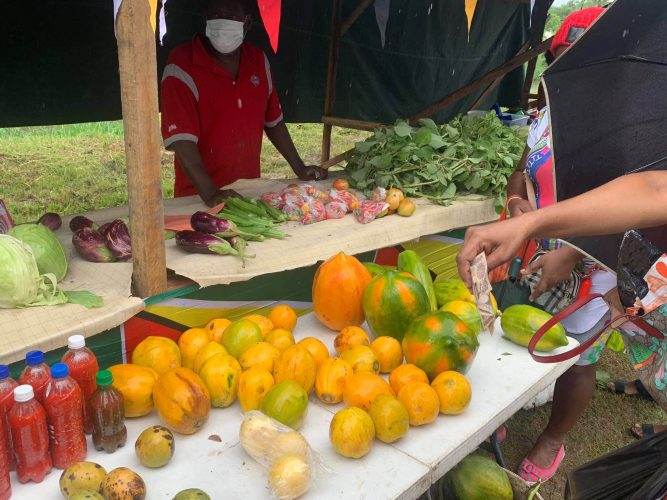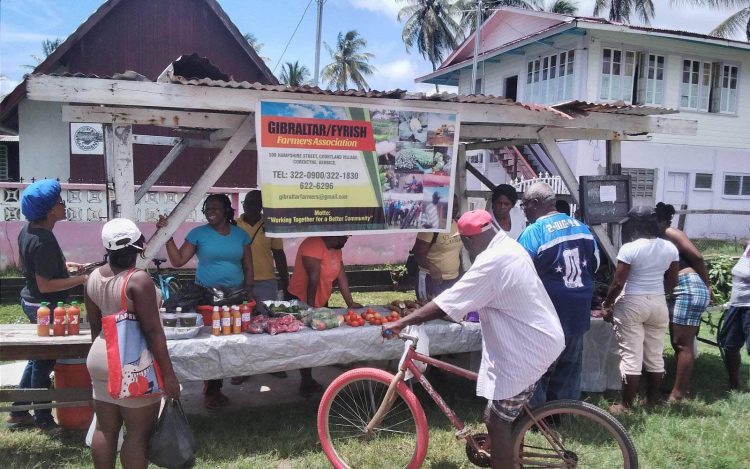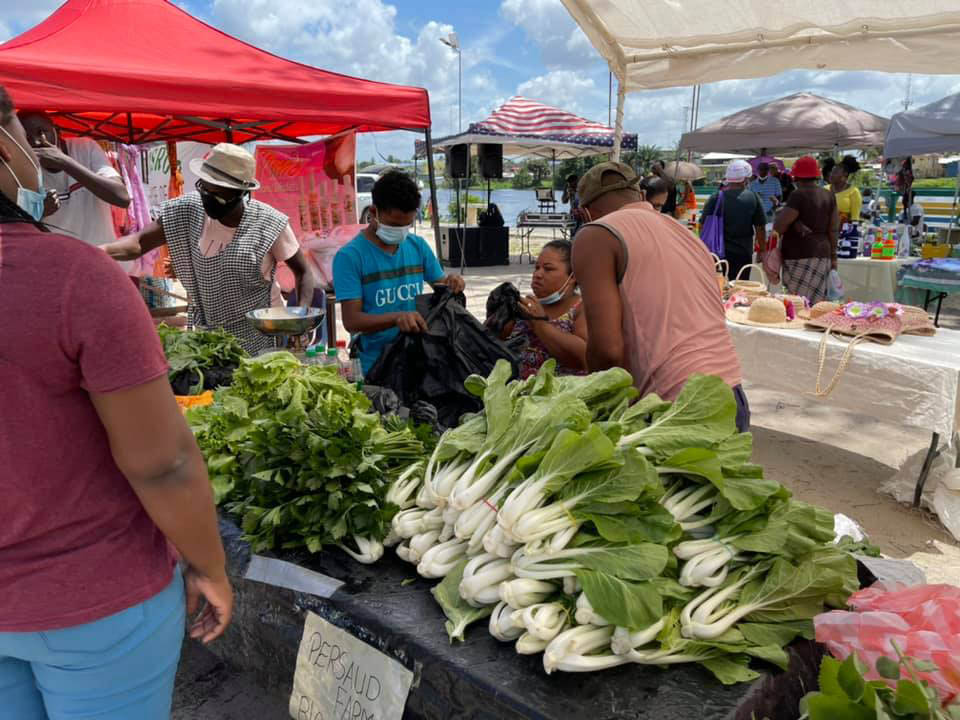As the COVID-19 pandemic persists in its frightening rampage, loss of jobs, whether through temporary or longer-term displacement, have closed off income-earning avenues for several types of businesses, arguably, none more so, than Farmers’ Markets.
At the commencement of the global spread of the pandemic early in 2020 when the emergencies associated with pushing back the virus meant that saving lives rather than jobs was the leading priority, enterprises like Farmers’ Markets, given their association with relatively limited spaces and large numbers of shoppers were, to a large extent, ‘kicked to the curb’ in the ensuing scramble.
Here in Guyana, as far as this newspaper is aware, Farmers Markets’ continue to be isolated ‘hit or miss’ events and while it is acknowledged that particularly at this time, Farmers Markets can work to the advantage of both buyers and sellers, there exists, as far as the Stabroek Business is aware, no clear-cut policy on the holding of these commercial gatherings.

Contextually, it should be noted that while state and local policy on Farmers Markets in the United States has been described in the media as “a jumbled policy,” some states, (not all) nonetheless, have declared them to be “essential businesses.” This, in essence amounts to an acknowledgement that ‘Farmers’ Markets’ offer both buyers and sellers an invaluable option to conventional trading as the COVID 19 pandemic persists.
That said, the ambiguity associated with the staging of Farmers’ Markets in the absence an official policy on the issue places both farmers, consumers and in some instances, entire communities in a position of uncertainty at a time when access to reasonably priced healthy nutritious foods is needed more than ever.
Since Farmers’ Markets have long played an important role in increasing food access in low-income communities whilst boosting the incomes of small farmers and agro processors, now that food insecurity has heightened and with some supply chains compromised Farmers Markets are important to the filling of both health and economic gaps.

Across-the-country Farmers Markets had, up until the advent of covid-19, been commonplace events, with the Guyana Marketing Corporation and the various Local Authorities doing much to enable the staging of these events. In the instance of the GMC, the agency not only played a role in the creation of the logistical environment for the staging of those markets but also directly assisted the vendors in the promotion and sale of their products through the participation of the Guyana Shop.
If the limitations imposed by the covid-19 situation would have served to place restraints on the ability of the GMC to help plan and execute Farmers’ Markets, one might have expected that agency to be in the forefront of a wider officially-driven initiative to ensure that the Farmers’ Markets, themselves, do not become victims of the pandemic. There is no indication that this has been happening.
Whether responsibility in this regard should be placed solely at the feet of the GMC is unclear. It functions, after all, under the administrative control of the Ministry of Agriculture which Ministry, we have stated hitherto, has been delinquent in its responsibility to assign a suitably high profile to the United Nations-designated International Year of Fruits and Vegetables.
During the period of the pandemic this newspaper has attended and/or publicized quite a few Farmers Markets including one in the Capital, one in Linden, two at Mocha, two in consecutive weeks at Gibraltar/Fryish and others at #28 Village, Belladrum and Hopetown, in West Coast Berbice. All of these, as far as we are aware, were staged with some type of official permission and as far as we know, they all went reasonably well.
Farmers’ Markets, particularly in times like these, play a vital in supporting community revitalization, incubating small businesses that may otherwise lack the resources to ‘hit the ground running” and offer local supply chains that ultimately benefit local economies. These, one might add, are times when survival and growth are dependent on well thought out initiatives that focus of enhancing lives in a time of crisis. The relevant state agencies, not least the GMC which has a track record for organizing and supporting small farmers and Agro-Processors in their pursuits, must be pressed into further service at this time.






